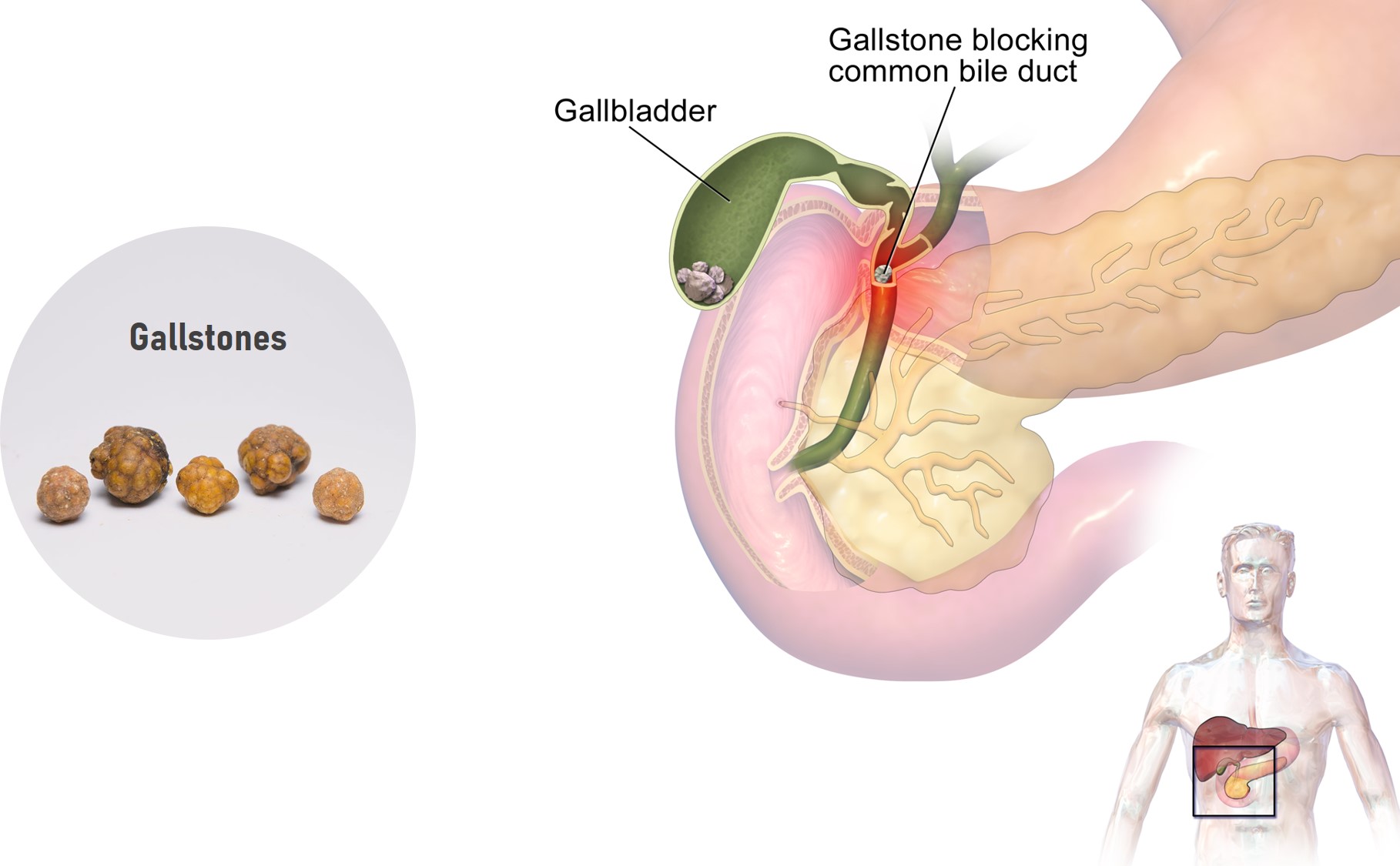“In India, more than 9% of the adult population gets gallstones and experience severe and sudden pain in their upper right abdomen, eventually leading them to emergency rooms.”
So what are gallstones and how can you prevent them? Let’s find out.
What Are Gallstones?

Gallstones are hardened deposits of digestive fluid that can form in your gallbladder. Your gallbladder is a small, pear-shaped organ on the right side of your abdomen, just beneath your liver. The gallbladder holds a digestive fluid called bile that’s released into your small intestine.
The two types of Gallstones are:
(1) Cholesterol stones – The most common type of gallstone, called a cholesterol gallstone, often appears yellow in color. These gallstones are composed mainly of undissolved cholesterol, but may contain other components.
(2) Pigment gallstones – These dark brown or black stones form when your bile contains too much bilirubin.
What causes Gallstones?
There are multiple reasons for formation of gallstones in your gallbladder. The most common causes are:
Your bile contains excessive cholesterol. If your liver excretes more cholesterol than your bile can dissolve, it may lead to the formation of cholesterol crystals.
Your gallbladder doesn’t empty correctly. If your gallbladder doesn’t empty completely or often enough, bile may become very concentrated, resulting in the formation of gallstones.
Excessive bilirubin in your bile. Bilirubin is a chemical that’s produced when your body breaks down red blood cells. Certain conditions cause your liver to make too much bilirubin, including liver cirrhosis, biliary tract infections and certain blood disorders. The excess bilirubin contributes to gallstone formation.
Ways to prevent gallstones
Maintaining a healthy weight through diet and exercise helps to reduce your risk of gallstones. Here’re 5 ways you can prevent gallstones.
Maintain a healthy weight. Lose Weight Gradually, Not Rapidly.
Overweight and obesity are among the top contributors of gallstone development. Avoid crash diets or rapid weight gain/loss as it can increase your chances of developing gallstones.
Stick to healthy fats always
Excess levels of cholesterol causes cholesterol gallstones. Fats found in olive oil, canola oil and omega-3 fatty acids from fish – all contribute to keeping your gallbladder healthy and preventing gallstones.
Eat fibre-rich foods
Whole-grain bread and cereals, peanuts, walnuts, and legumes help prevent gallstone disease. Snack on almonds to help you lose weight and ease your hunger.
Exercise
Regular physical activity can help reduce the chances of developing gallstones. So if you lead a sedentary lifestyle, it’s time to get moving.
Take Preventative Medication
Consult your gastroenterologist to know if you need any preventive medication to lower your risks of gallstone formation.
When should you visit your Gastroenterologist for gallstones treatment?
Gallstone pain can last several minutes to a few hours. It is generally treated with gallbladder removal surgery. However, consult your gastroenterologist if you experience any of the these symptoms.
- Sudden, intense pain in the upper right and centre of your abdomen
- Back pain, near the shoulder blades
- Nausea, vomiting, or high fever with chills
- Yellowing of skin and eyes





No comments yet.